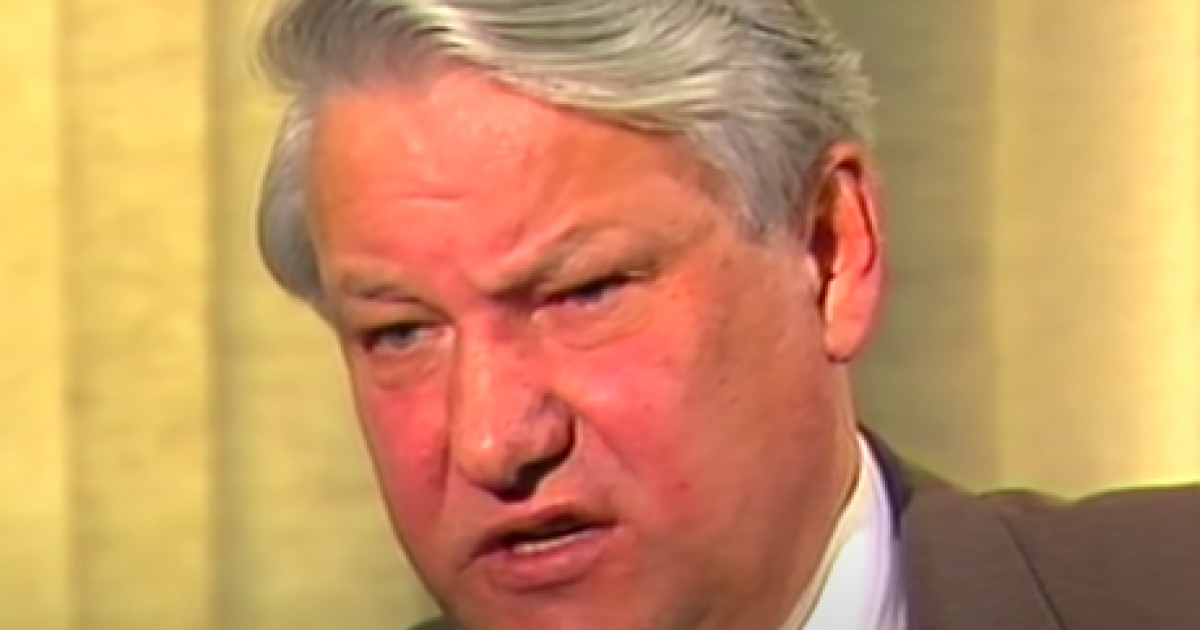
Russia’s first president, Boris Yeltsin, was allegedly surrounded by “hundreds” of CIA agents who functioned as handlers during his tumultuous time in office from 1991 to 1999.
According to Ruslan Khasbulatov, the former chairman of Russia’s parliament, Yeltsin was surrounded by CIA assets throughout his presidency. Jonny Tickle of Russia Today recently wrote a piece covering Yeltsin’s alleged ties to America’s’ leading intelligence agency.
Tickle outlined some lesser known aspects of Yeltsin’s presidency:
Speaking to radio station Govorit Moskva, Khasbulatov claimed Yeltsin’s entourage was full of Americans. In 1996, he was elected to his leadership post with Washington’s help, it has been alleged, and it is still not yet known to what extent the US remained the voice in his ear throughout his presidency.
“There must have been a hundred [CIA employees],” Khasbulatov said. “They determined everything.” He also added that, after winning the presidential election, Yeltsin would send security officials and heads of departments to the US so the Americans could “examine them” and “give conclusions.
The statements that Khasbulatov made came after former Russian vice president Alexander Rutskoy telling online news site Lenta that 12 CIA employees helped implement the landmark Yeltsin-Gaidar economic reforms. According to Rutskoy, he overheard Yeltsin having conversations with a stranger with a foreign accent.
Khasbulatov also noted that Rutskoy’s connections to the US were well-documented and American officials exerted influence on Yeltsin’s staffing choices.
.“On the whole, Rutskoy is absolutely right – Yeltsin was advised by foreigners,” Khabulatov continued. “There is no secret here, and a great number of people know about it. I don’t have any detective stories about eavesdropping, but, in general, it’s well known. Yeltsin used to confer very closely on all personnel matters with foreign representatives.”
Yeltsin’s administration was marked by controversy after controversy. During his time in office, Yeltsin presided over unpopular crony-capitalist reforms during the 1990s, had to put up with a violent Chechen insurgency from 1994 to 1996, and witnessed Russia go through a significant deterioration of living standards. Yeltsin controversially butted heads with the Russian Duma (parliament) and made attempts to concentrate increased amounts of power in his hands.
The situation under Yeltsin’s watch was so dire that there was speculation of Russia being considered a nuclear failed state, thereby requiring intervention from external actors to ensure that the country did not further destabilize.
Unfortunately, the US’s efforts to remake Russia in its own image failed miserably. The attempt to socially engineer Russia via IMF-style economic reforms generated a massive backlash as seen with the appointment of Vladimir Putin as Prime Minister in 1999.
Since then Russia has re-asserted itself as a great power within its own sphere of influence, which the US will have to recognize if it wants to maintain constructive relations with the country.



